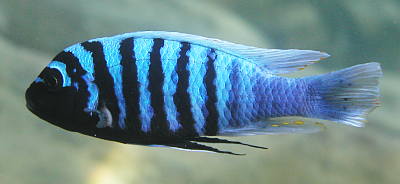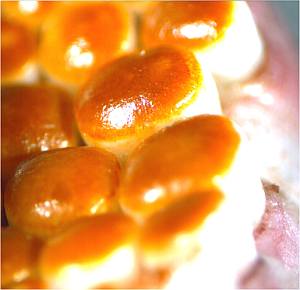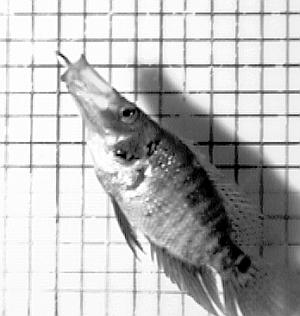SICB Annual Meeting 2009
January 3-7, 2009
Boston, MA
Symposium “Genomics and Vertebrate Adaptive Radiation: A Celebration of the First Cichlid Genome”
Organized by: Darrin Hulsey and Suzy Renn

Objectives
Our symposium at the Society for Integrative and Comparative Biology (SICB) annual conference in Boston 2009 is focused on the integration of genomics into phenotypic studies of vertebrate adaptive radiations such as cichlid fishes. The Broad Institute is the NIH sequencing center that will accomplish this work. The Broad Institute is conveniently located in Boston and is in the process of sequencing the genomes of the cichlid fishes Tilapia nilotica (7X), Astatotilapia burtoni (2X) Paralabidochromis chilotes (2X) and Metriaclima zebra (2X). These fish have important applied and scientific value. Tilapia nilotica is not only a major source of protein for much of the world but is also a focal organism for comparative renal physiology, ion balance, and endocrinology. The cichlids Astatotilapia burtoni, Paralabidochromis chilotes, and Metriaclima zebra are members of the East African rift lake cichlids that show incredible craniofacial, color, and behavioral diversity in the over 1000 species that inhabit the African rift lakes of Victoria, Tanganyika, and Malawi. The sequencing of these genomes will offer an unprecedented window simultaneously into the genetics of one of the world’s major protein sources and vertebrate comparative phenotypic diversity.
SICB is dedicated to bringing together scientists from a wide range of disciplines to integrate across levels of biological design. This symposium will outline some of the ways that researchers are attempting to bridge the gaps between genomic diversity, development, and phenotypic diversity in lineages of vertebrates that have rapidly evolved phenotypic adaptations. Our symposium is focused on cichlid fishes but is incorporating speakers that work on developmental, physiological, and behavioral genomics in more traditional model vertebrate systems. Our goal is to augment talks of cichlid researchers with talks from biologists working with the link between genomics and phenotypes in other vertebrate groups. What we plan are talks on research programs such as the genetics and development of craniofacial diversity and color patterns in zebrafish and stickleback followed by talks focusing on the genetic and developmental architecture of cichlid jaws, teeth, and color. This integration across both established and the new cichlid model system should provide a broad framework for understanding how genomic information obtained from novel organisms hastens scientific discoveries.

This symposium is timely because it will closely coincide with the Broad Institute completing the draft of the Tilapia genome. As SICB 2009 is in Boston, this will provide an ideal opportunity for the society to interact with scientists from the Broad institute that are increasingly producing genomes for numerous taxa. We will also include members of the Broad Institute as speakers. Also, directly after the SICB conference there will be an analysis meeting for cichlid researchers hosted at the Broad Institute to work on marker discovery associated with the genome sequencing. We believe this symposium focusing on the preparations (and deficiencies) of the cichlid community during the release of its first genomes will be instructive to the scientific community at large. The accessibility of genome sequencing, how genomic information can be applied to understanding organismal phenotypes, and how this information can refocus old and pose novel questions will be of wide interest to SICB. Integrating genomics into studies of the phenotype is quickly becoming the rate-limiting step in our understanding of organismal diversity and this symposium will serve as a model for how to increase this rate.

List of Speakers
S8.1 Tuesday, Jan. 6, 08:00 HULSEY, CD:
Cichlid Genomics and Phenotypic Diversity in a Comparative Context
S8.2 Tuesday, Jan. 6, 08:30 DI PALMA, Federica*; SWOFFORD, Ross; GRABHERR, Manfred; MAUCELI, Evan; PIRUN, Mono; LANDER, Eric S.; LINDBLAD-TOH, Kerstin:
Sequencing the genome of non-traditional model organisms.
S8.3 Tuesday, Jan. 6, 09:00 ALBERTSON, R.C.:
Integration and evolution of the cichlid feeding apparatus II: Adaptations for power.
S8.4 Tuesday, Jan. 6, 09:30 STOCK, D.W.:
Zebrafish developmental genetics and the mechanisms of dental evolution
S8.5 Tuesday, Jan. 6, 10:30 STREELMAN, JT:
Constraint and diversification in the evolutionary development of cichlid dentitions
S8.6 Tuesday, Jan. 6, 11:00 BOUGHMAN, JANETTE W.:
Genetics and the nature of selection on reproductive isolation in sticklebacks
S8.7 Tuesday, Jan. 6, 11:30 CARLETON, Karen L:
The diversity of cichlid vision
S8.8 Tuesday, Jan. 6, 13:00 KOCHER, Thomas D:
Evolution of Sex Determination in East African Cichlid Fishes
S8.9 Tuesday, Jan. 6, 13:30 CHESLER, E.J.*; ZHANG, Y.; PHILIP, V. M.; CULIAT, C.T.; LANGSTON, M.A.; CHURCHILL, G.A.; MANLY, K.F.:
From genome to systems genetics: The Collaborative Cross mouse genetic reference population
S8.10 Tuesday, Jan. 6, 14:00 HOFMANN, HA:
Evolution of Cichlid Mating Systems: How Social Behavior Sculpts Brains and Genomes
S8.11 Tuesday, Jan. 6, 14:30 RENN, Suzy C P:

